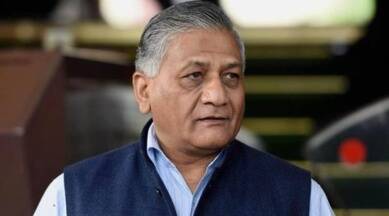Govt. of India takes steps to augment the development of the civil aviation sector
New Delhi: The domestic air traffic is almost near to the pre-COVID level.
Ministry of Civil Aviation launched Regional Connectivity Scheme (RCS) – UDAN (Ude Desh ka Aam Nagrik) on 21-10-2016 to stimulate regional air connectivity and make air travel affordable for the masses. The UDAN scheme envisages providing connectivity to unserved and underserved airports of the country through revival of the existing airstrips and airports. UDAN is a demand-driven scheme, wherein airline operators assess the feasibility of operation on a particular route and bid under the scheme from time to time. Selection of airlines is done through transparent bidding process.
As on 30.11.2022, after four rounds of bidding under UDAN, 453 routes have commenced, operationalizing 70 Airports including 2 Water Aerodrome & 9 Heliports. More than 2.15 lakh UDAN flights have operated and over 1.1 crore passengers have availed the benefits in UDAN flights so far. The scheme has been able to provide air connectivity to Tier-2 &Tier-3 cities at affordable airfares and has transformed the way people travel.
Krishi Udan 2.0 focuses on transporting perishable food products from the hilly areas, north-eastern states and tribal areas. Under Krishi Udan Scheme, Airports Authority of India provides full waiver of Landing Parking, Terminal Navigation Landing Charges (TNLC) and Route Navigation Facility Charges (RNFC) for Indian freighters and P2C (Passenger-to-Cargo) Aircraft primarily around 25 airports focusing on North Eastern, Hilly and Tribal region and 28 airports in other regions/areas. A review of Krishi Udan 2.0 Scheme has been done by Ministry after which 05 more airports have been added thus making it a total of 58 airports.
Upgradation/Modernisation of airports’ infrastructure is a continuous process and is undertaken by Airports Authority of India (AAI) and other Airport Developers from time to time depending on the availability of land, commercial viability, socio-economic considerations, traffic demand/willingness of airlines to operate to/from such airports. AAI and other Airport Developers have targeted capital outlay of approximately Rs. 98,000 crore in airport sector in the next five years for expansion and modification of existing terminals, new terminals and strengthening of runways, among other activities.
The Government of India has accorded ‘In-Principle’ approval for setting up of 21 Greenfield Airports namely, Mopa in Goa, Navi Mumbai, Shirdi and Sindhudurg in Maharashtra, Kalaburagi, Vijayapura, Hassan and Shivamogga in Karnataka, Dabra (Gwalior) in Madhya Pradesh, Kushinagar and Noida (Jewar) in Uttar Pradesh, Dholera and Hirasar in Gujarat, Karaikal in Puducherry, Dagadarthi, Bhogapuram and Oravakal (Kurnool) in Andhra Pradesh, Durgapur in West Bengal, Pakyong in Sikkim, Kannur in Kerala and Donyi Polo, Itanagar in Arunachal Pradesh across the country.
From the year 2019 to 2022 38 new Airports including 10 greenfield airports have been inaugurated and total 351 RCS Routes operationalised under UDAN Scheme.
Ministry of Civil Aviation has notified the Drone Rules 2021 on 25th August, 2021. Under the Drone Rules, 2021, MoCA has published an interactive airspace map for drone operations segregating the entire airspace of India into red, yellow and green zone. A Production-Linked Incentive (PLI) scheme for drones has also been notified on 30th September 2021.
In order to develop Helicopter services for Emergency Medical Service (HEMS) to provide a speedy medical outreach to needy citizens, the Government intends to undertake a HEMS pilot project in the mountainous state of Uttarakhand called Project Sanjeevani.
Ministry of Civil Aviation is in the process to assess the possibilities to frame guidelines on fractional ownership to promote small airlines/helicopter operations under NSOP category in consultations with Ministry of Corporate Affairs, Ministry of Finance, DGCA and Industry Stakeholders.
The Value Added Tax (VAT) on Aviation Turbine Fuel (ATF) has been reduced by the following States/ UTs in the range of 1-4%:
(i) Andaman & Nicobar Islands, (ii) Uttarakhand, (iii) Jammu & Kashmir, (iv) Ladakh, (v) Himachal Pradesh, (vi) Tripura, (vii) Madhya Pradesh, (viii) Haryana, (ix) Uttar Pradesh, (x) Dadra & Nagar Haveli and Daman & Diu, (xi) Arunachal Pradesh, (xii) Manipur, (xiii) Jharkhand and (xiv) Mizoram. Gujarat and Karnataka have reduced VAT on ATF to 5% and 18% respectively in their States.

